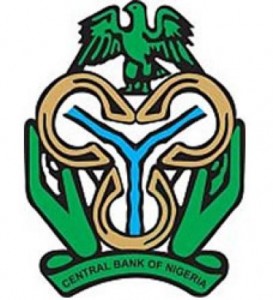As members of the Central Bank’s rate-setting committee (the MPC) make their way this weekend to Abuja for the committee’s meeting Monday and Tuesday next week, one wonders what their central concerns are.
Much of the economy is unchanged from January. Or indeed, for that matter from May, when a new administration (which had promised so much from the hustings ahead of the general elections in April) came into office. Where major indices have changed, they have offered up conflicting signals. Inflation for instance is down, and has remained in the single digit range in the last two months. Food is the dominant component of the consumer price index, and so long as we remain in the harvest season, i.e. until the end of this year, the index should remain subdued. Remove food from the equation, though, and the picture changes slightly. The “All Items less Farm Produce” measure was at 11.5%, year-on-year, in July; and last month, dropped to 10.9%. Core inflation ain’t just not yet in the single digit range, but is still cause for worry.
So, how to respond to this? Interest rates no longer matter. The banks are sitting on a pile of cash, with few of them any surer now, than they were at the beginning of the year, what to do with it. Now this is a problem of an interesting type. Higher rates might (“might”) have an impact on lending prices, as the banks try to pass through their growing costs. But with a comatose economy, traditional lending markets have frozen, and it is doubtful whether customers can be persuaded to put up more of their cashflows to cover higher loan service charges. Besides, real lending and interbank rates have since moved into positive territories, as headline inflation numbers have trended downwards. In addition, what is to stop competition refinancing these loans at lower coupons (as is already happening)? At the liabilities end of the balance sheet, the story is a lot different. Higher policy rates wouldn’t matter much. The banks’ liquidity overhang (I like the cadence of the word) means that they are not in the market for more deposits, and might very soon charge bank customers for keeping money safely with them. Remember that the banks have already put up the minimum account opening and operating balance numbers.
One useful line of discourse is the enquiry into how much and how the apex bank could tinker with the banks’ liquidity position. How about raising the cash reserve ratio (CRR)? Remunerated, it just might pay the banks to warehouse all that excess cash with the central bank. Unremunerated, most banks should be indifferent to a higher CRR rate.
What then is left for the central bank to do? I’d have said nothing, except that the exchange rate is increasingly the most important index in the country. Although exact numbers are hard to come by, it is the one price whose movement in any direction today is likeliest to impact on the average Joe’s life through its effect on general prices. Should the CBN then continue to defend the naira? Just about every person I’ve spoken to with enough knowledge on this matter thinks so. I don’t agree. However, not to worry, somehow, despite the large throughput from the nation’s crude oil exploration activities this year, and the elevated prices for crude oil in the international markets, we have contrived, as usual, to box ourselves into a corner of our own making. With the external reserves as low as they currently are, the CBN should soon run out of the ammunition needed to support the naira.
